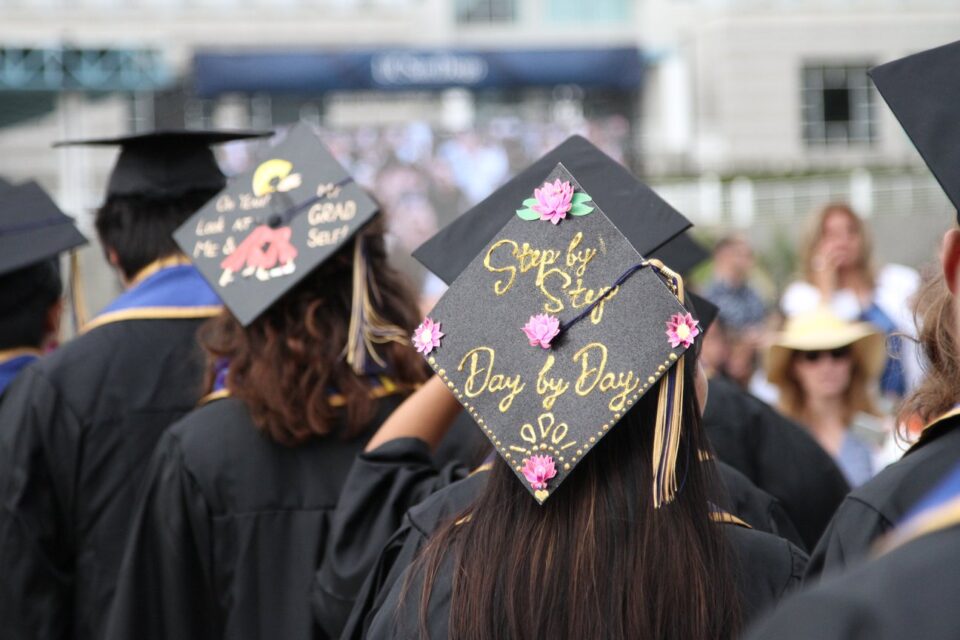UC San Diego and other public universities implemented several policies designed to recruit low-income students after a landmark Supreme Court ruling last year found that two elite universities violated the U.S. Constitution with affirmative action policies.
UC San Diego appears to be using back-door affirmative action tactics by significantly reforming its admissions policy for selective majors to prioritize first-generation students from lower-income families.
Last month, university officials updated the admissions process for selective majors, which include studies ranging from engineering and public health to biological and data sciences, to give an advantage to students in a lower socio-economic class over other students with college-educated parents who make more than $45,000 per year.
“Beginning in Summer 2025, currently enrolled students who want to switch into a selective major will be able to apply to selective majors once per year (between Summer and Fall quarters),” the website reads. “The selection criteria for entry to the major will consider academic achievement in the specified screening courses and will also be aligned with UC San Diego’s priorities of serving California residents, first-generation college students, and students from low-income families.”
“Continuing students who apply to switch to a selective major must have completed the required screening courses for that major and be in good academic standing. They will then be considered for the major using a point system that awards one point each for having a 3.0 GPA or higher in the major screening courses; California residency; Pell Grant eligibility; and first-generation college status (as determined by information received at the time of initial admission to UC San Diego).”
In 2022, the university reported that 42% of its undergraduate population identified as first-generation college students. Under the updated policy, UC San Diego grants separate preferences for those students, making it virtually impossible for other students to enroll in computer science or other selective majors.
San Diego — traditionally the third most prestigious school in the University of California system — and other public universities implemented several policies designed to recruit low-income students after a landmark Supreme Court ruling last year found that two elite universities violated the U.S. Constitution with affirmative action policies.
The nation’s highest court ruled in favor of Students for Fair Admissions, which sued Harvard University and the University of North Carolina for race-based admissions programs at each institution. The student group pointed to high test scores of rejected Asian-American and white applicants.
Harvard University violated Title VI of the Civil Rights Act, and the University of North Carolina programs violated the Equal Protection Clause of the 14th Amendment, the court ruled.
The decision profoundly impacted academic institutions nationwide, including private universities in California that have been allowed to consider race in admissions.
However, UC officials reportedly asked the court in an amicus brief to allow race-conscious admissions policies, citing a lack of racial diversity in the student body.
That likely stems from the growing number of California voters who have twice rejected racial preferences in public education, public employment, and public contracting—first in 1996, with over 55%, and most recently in 2020, with over 57%.
But that doesn’t stop radical state lawmakers or university officials from creating alternative ways to replace race-based admissions to circumvent California’s constitutional guarantee of equal treatment, including eliminating standardized test scores.
Last year, a California resident exposed UC San Diego documents that illustrate a dramatic shift in acceptance rates between majority Asian high schools and majority Hispanic high schools in Los Angeles and Orange Counties.
The data showed before the spring of 2020, the majority of Asian high schools saw acceptance rates collapse to much lower than the statewide average in 2022 while the majority of Hispanic high schools witnessed an increase in acceptance rates.
It is unclear the cause of the change in UC admissions after 2020, but the data appears to indicate a general disregard for merit. With the new selective major policy, speculation grows the policy plan will once again disproportionately affect excelling students.


